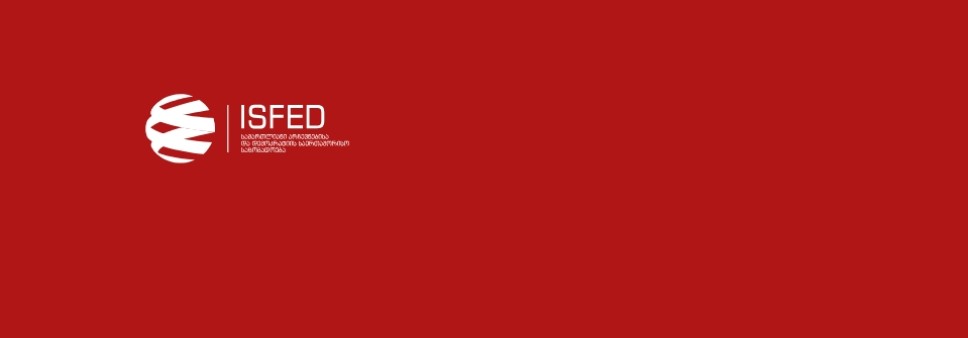Strategic Silence
In 1956, when the first Georgian television, currently the public broadcaster (PB), went on air for the first time, it had a concrete purpose to serve as a weapon of propaganda for the USSR. It acted according to a book of pre-defined rules; more than that, there was a designated official called Mtavliti who controlled each and every word aired by a radio or a TV broadcaster, compared it against the book of censorship and subsequently allowed or refused to allow broadcasting of the material.
The public television remained under control even though the country was able to liberate itself from the Soviet shackles. The channel first became a target of numerous threats made by the first president of Georgia and later managers of the channel served the government’s will, whether directly or not.
One of the gains following the 2012 elections and the change of power was somewhat liberating media from the control of the ruling force. The public broadcaster launched critical programs and it wasn’t an ostentatious pseudo-criticism but a genuine criticism with a strong voice. The most popular of these programs are Real Space and Interview. These programs are known for their open criticism and a wide array of topics that they touch upon, for hosting social groups whose voice is not heard elsewhere; however, today the Public Broadcaster’s voice can be silenced for one year no one knows what the silenced channel left with nothing more than a white noise will look like in 2018.
On February 6, the newly elected Director General unveiled a strategy for development of the Public Broadcaster. To summarize the strategy, for the period of one year all except news programs will be closed and the money saved by optimization will be used for technical and technological upgrading of the channel. The broadcaster will be digitalized and a new management model will be introduced. It is safe to say that the new management plans to improve the channel at the expense of public interests, especially considering the status of the Public Broadcaster and its importance in light of the changes in the media landscape in Georgia, the government with constitutional majority and the upcoming local self-governmental elections, only a few months away.
Not only it is unacceptable to silence the broadcaster because this decision does not serve the public interests, it is also illegal.
Local self-governmental elections are scheduled to be held in October 2017 in Georgia. Therefore, realization of the Constitutional right to vote for Georgian citizens will depend on information support provided for the pre-election campaign and conduct of the election process in a competitive environment, one of the guarantors of which is the Public Broadcaster and the news programs, pre-election political advertising and election-related
programs/political debates aired on it.
The action plan proposed by the PB Director General is against the fundamental principles of elections coverage, since according to the plan, to overcome the crisis it is necessary to “stop all programs and production on all platforms of the broadcaster, except for the news programs.” Therefore, according to the action plan and public statements that have been made, all programs except for the news programs will be terminated on the broadcaster during the election year, which essentially precludes fulfillment of the Public Broadcaster’s responsibilities before voters.
In light of the public interests related to the electoral processes, the Election Code of Georgia and the law of Georgia on Broadcasting envisages special responsibilities for the Public Broadcaster for coverage of the election process, including: broadcast the news, public-political programs and electoral debates (during electoral campaigns) at prime time; cover the pluralism of opinions existing in the public; take into consideration the interests of persons with disabilities; during an election campaign or the conduct of referendum/plebiscite, provide sign language interpretation for its own programs about elections/referendum/plebiscite; ensure equal participation of all qualified electoral subjects in pre-election debates in a non-discriminatory manner.
In addition to covering pre-election period, the broadcaster also has the following imperative obligation: in the period between elections, the Public Broadcaster must weekly broadcast programs intended to hold political discussions on the most important developments in the country, ensure representation of political forces (factions) functioning within the Parliament of Georgia in a non-discriminatory manner, as well as representation of the political unions that are financed from the State Budget of Georgia.
However, according to the three-year action plan for “transformation and development”, the Public Broadcaster will no longer fulfill its responsibilities since all programs will simply be suspended (except for the news programs).
Such obligation and standard to cover political processes and elections is not envisaged for any other media outlet by the law, as the legislator has imposed the most important process – special standard for media coverage of elections – only for broadcasters that receive public funding. Therefore, if the three-year action plan unveiled by the PB Director General is realized, it will be essentially impossible to hold competitive elections that live up to international standards.
The new manager of the broadcaster told the media that the channel is facing “a technical collapse” and there is no other solution but to “suspend” the programs. Considering the recent consolidation of some broadcasters in one holding and Rustavi 2 trial that continues, silencing the Public Broadcaster could be aimed at reducing media pluralism during the election year.

